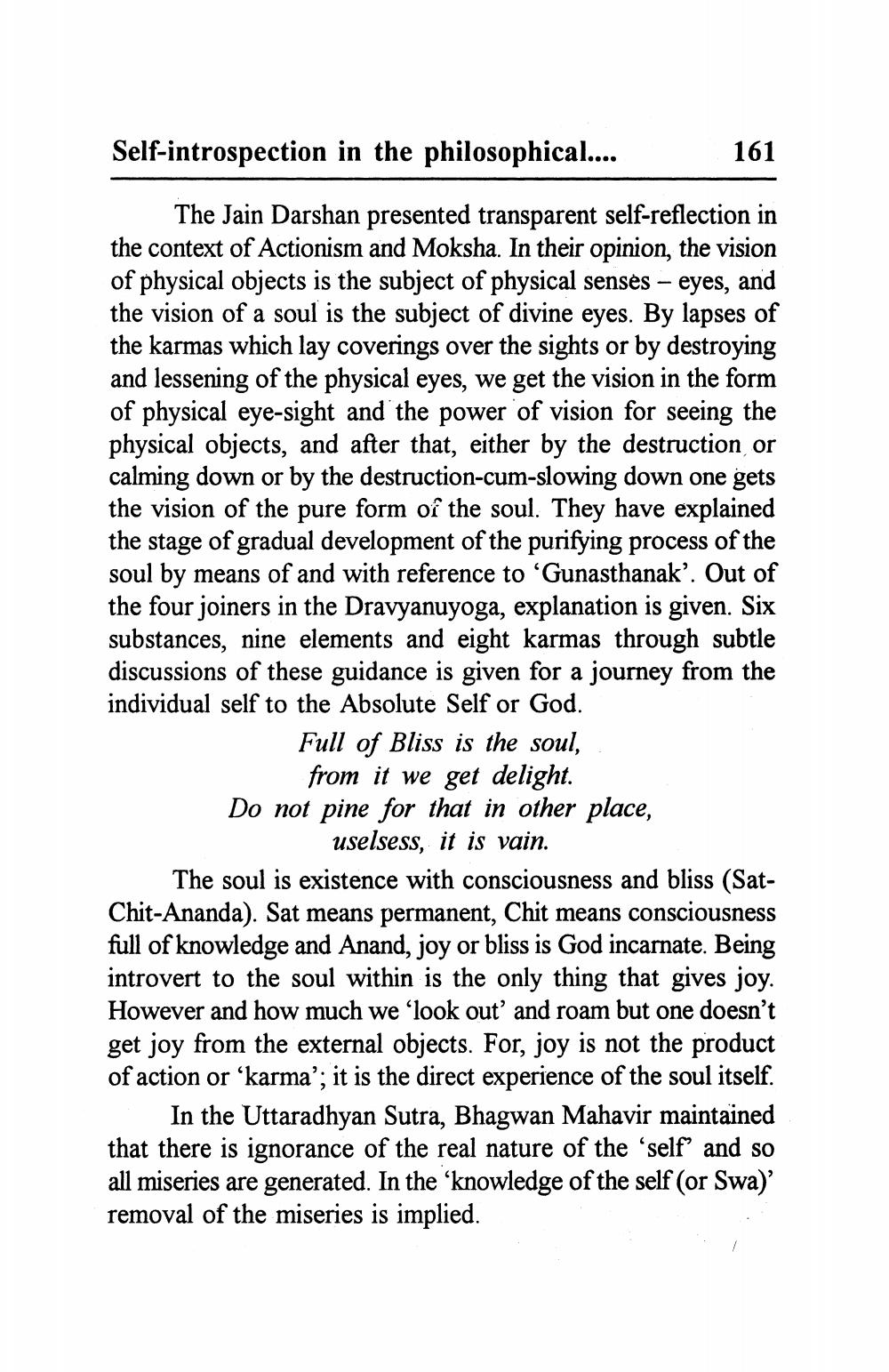________________
Self-introspection in the philosophical....
The Jain Darshan presented transparent self-reflection in the context of Actionism and Moksha. In their opinion, the vision of physical objects is the subject of physical senses - eyes, and the vision of a soul is the subject of divine eyes. By lapses of the karmas which lay coverings over the sights or by destroying and lessening of the physical eyes, we get the vision in the form of physical eye-sight and the power of vision for seeing the physical objects, and after that, either by the destruction, or calming down or by the destruction-cum-slowing down one gets the vision of the pure form of the soul. They have explained the stage of gradual development of the purifying process of the soul by means of and with reference to 'Gunasthanak'. Out of the four joiners in the Dravyanuyoga, explanation is given. Six substances, nine elements and eight karmas through subtle discussions of these guidance is given for a journey from the individual self to the Absolute Self or God.
Full of Bliss is the soul, from it we get delight.
Do not pine for that in other place, uselsess, it is vain.
161
The soul is existence with consciousness and bliss (SatChit-Ananda). Sat means permanent, Chit means consciousness full of knowledge and Anand, joy or bliss is God incarnate. Being introvert to the soul within is the only thing that gives joy. However and how much we 'look out' and roam but one doesn't get joy from the external objects. For, joy is not the product of action or 'karma'; it is the direct experience of the soul itself. In the Uttaradhyan Sutra, Bhagwan Mahavir maintained that there is ignorance of the real nature of the 'self' and so all miseries are generated. In the 'knowledge of the self (or Swa)' removal of the miseries is implied.




